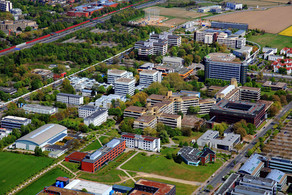Seeds - Preserving Diversity
Fruits and vegetables used to be grown in farms and home gardens. Every year, seeds were obtained from the grown vegetables for cultivation in the next season. Farmers and home gardeners were also plant breeders. Through selection and seed collection, they developed seed-proof varieties with characteristics favorable to them. Thus, over the centuries, crops optimally adapted to the conditions of the region and a huge diversity of varieties were created.
Since the beginning of the 20th century, agriculture has become increasingly industrialized. Today's farmer grows crops on a large scale, but no longer controls the entire plant cycle. Plant breeding, seed and fertilizer production is increasingly done by external companies, mainly breeding hybrid plants that are homogeneous in form and cultivation but do not have a fixed genetic strain. As a result, knowledge about breeding and propagation of varieties and the diversity of varieties is increasingly being lost.
Do we need diversity?
One might ask whether we need variety at all. After all, the green broccoli in the supermarket is big and tasty, why do we need a red variety?
Especially for the climatic changes in the coming years, we as a society will need a large gene pool for crops in order to be able to adapt the plants to the changed environmental conditions. Not all varieties can cope with the environmental conditions, new breeding will then be needed, for which diversity in the gene pool and varieties is important. Genetically restricted hybrids cannot do this.
But diversity is also simply delicious and beautiful, so there are many colorful flowers and diverse foods to preserve.
Diversity is social and democratic: it unites people to conserve and grow plants together, it is an ancient cultural heritage. In addition, balanced diversity can significantly reduce the use of agrochemicals.
The German texts and information are taken from flyers from the Dachverband Kulturpflanzen- und Nutztiervielfalt e.V., which deal extensively with the topic.
Annotation: The texts have been translated.




